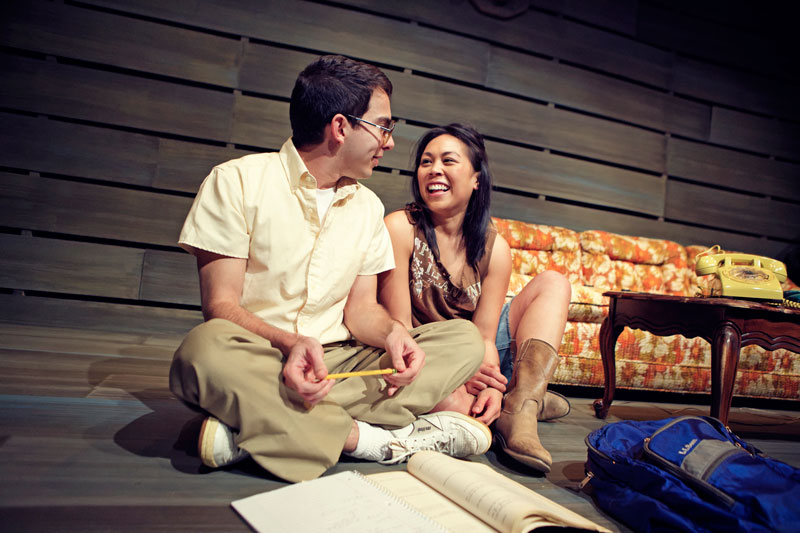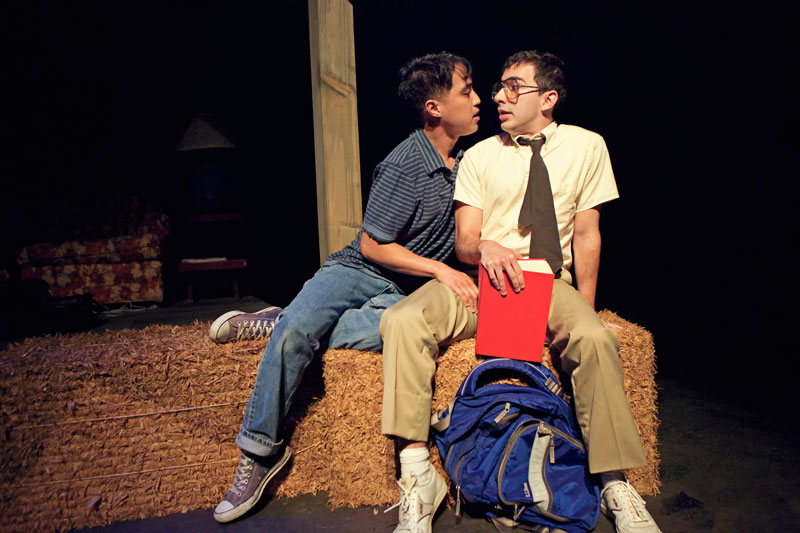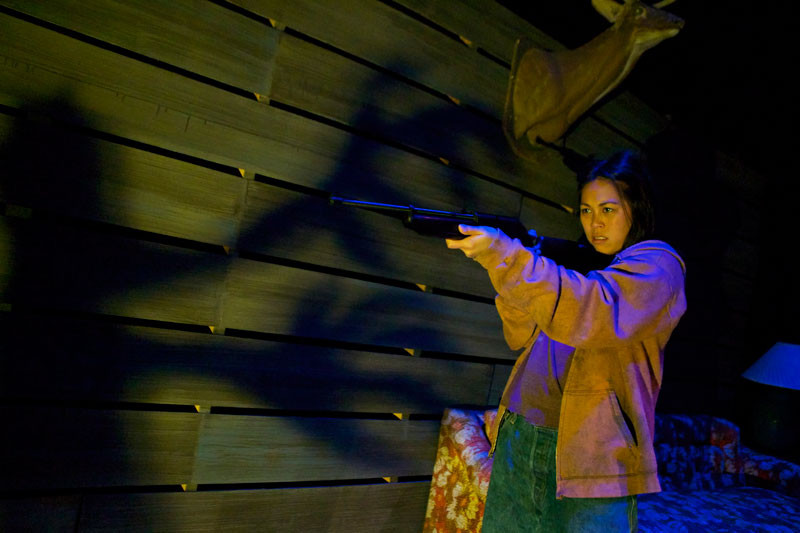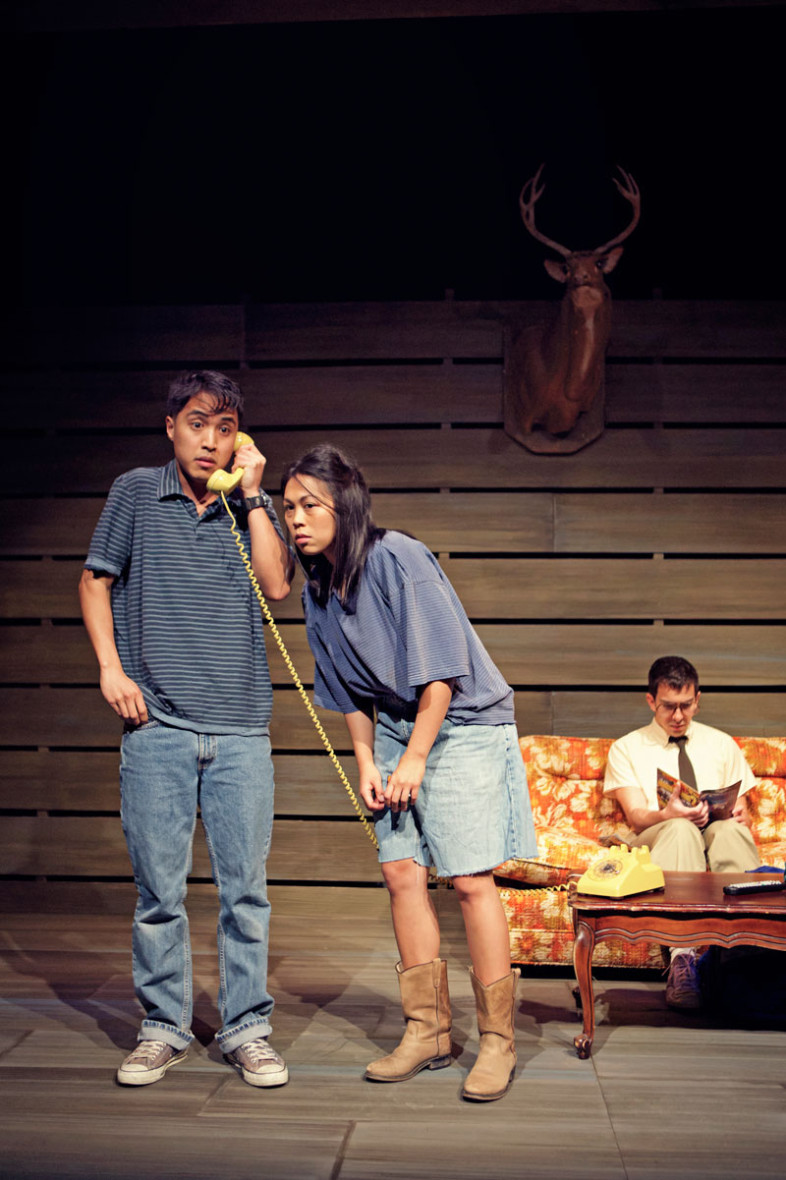Kenny and Edith aren’t orphans, but they might as well be. The young Filipino American siblings at the center of A. Rey Pamatmat’s play Edith Can Shoot Things and Hit Them are raising themselves on a remote farm somewhere in Middle America in the 1990s. Their mother is dead, but their father’s still alive; he’s just not around. He sends them money as if he were far away, but he’s actually not so far. He just never comes home. He’s always either at work or staying over at his girlfriend’s place, leaving the kids to fend for themselves.
Edith kicks off Crowded Fire Theater’s 18th season, which is a transitional year for the San Francisco company. Erstwhile artistic director Marissa Wolf left in December to take a job as director of new works at Kansas City Rep. Her newly named successor, Mina Morita, takes over in April, the same month she directs the second show of Crowded Fire’s season (Idris Goodwin’s Blackademics).

Desdemona Chiang, who previously directed The Hundred Flowers Project and Exit, Pursued by a Bear for the company, gives the play a brisk staging, with some fun musical tidbits in Madeline Oldham’s sound design (such as George Michael’s “Faith” and the song from the obscure old Disney flick The Gnome-Mobile).
The title is a line from the play, and it’s also true: Edith can shoot things and hit them. The 12-year-old girl is always marching around with a rifle, or occasionally a bow and arrow, often clutching her oversize stuffed frog at the same time. Edith doesn’t hunt to feed the family or anything like that. She’s just the self-appointed protector, play-acting that she’s on very important and dangerous missions. She probably shouldn’t be shooting things at all, nor should she sit high on the rafters of Deanna L. Zibello’s hybrid barn/living room set, but nobody’s around to tell her not to. Her 16-year-old brother, Kenny, is too busy trying budget to make the money last, maintain good grades in school and spend as much time as possible with his boyfriend.

Although the story is ostensibly about the siblings’ independence in their abandonment, the heart of the play is the budding romance between Kenny and his schoolmate Benji, the only other sophomore in pre-calculus class. It’s the first sexual relationship for both of them, and the mixture of boyish teasing, horniness and emotional shyness Wes Gabrillo’s stoic Kenny and Maro Guevara’s nebbishy Benji display with each other is awfully endearing. They’re refreshingly unconflicted about their feelings for each other, although it seems to be uncharted territory. Coming from a homophobic family, Benji takes comfort in the clinical, nonjudgmental words for homosexual sex that he finds in the dictionary.



